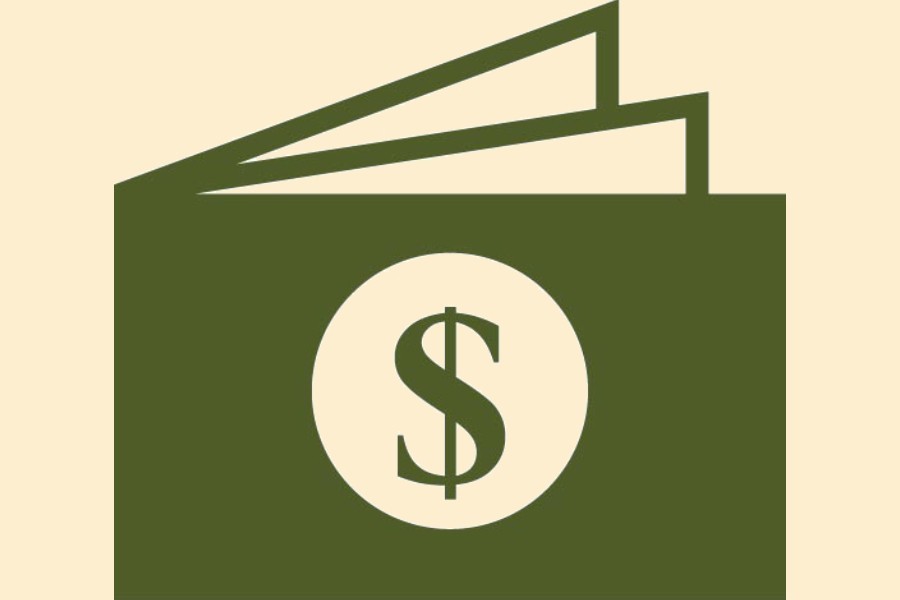Capping exchange rates is largely contributing to the current dollar crisis facing Bangladesh which could snowball into a much bigger economic crisis unless addressed immediately.
Such is a latest prognosis made Sunday by economists and financial experts in the wake import LC constraints and consumer price spirals stemming from the country's falling foreign-exchange reserves amid a global crunch.
To justify their proposition for deregulation of the dollar-taka exchange rate noted economist Dr Ahsan H. Mansur cited India's stance as an example. The neighbouring country didn't face any major economic problem mainly because of continuous adjustment to the exchange rate, he told a meet in Dhaka.
"But we did nothing significant, causing the dollar crisis. The impact of dollar crisis is so serious that Bangladesh never faced in many decades. Such crisis could turn snowball into a much bigger economic crisis in coming days if the problem is not addressed immediately," said Dr Mansur, Executive Director Policy Research Institute (PRI), while speaking as chief discussant at the discussion on the country's macroeconomic health and its Domino effect on life and business.

The Institute of Chartered Accountants of Bangladesh (ICAB) organised the roundtable discussion on the Monetary Policy 2022-2023 at the ICAB Council Hall in the city.
The PRI executive director mentioned that the policymakers keep saying that they would go for a market-based exchange rate. "Why it's so slow. We should rush to the emergency and make a unified rate."
He said the size of financial account was US$ 14 billion a couple of years ago. Last year, it was about US$ 13.7 billion. But the account now turns negative.
"It means, the country's financial account lost around US$ 14 billion in the last one year," said Mr Mansur, who had once served the International Monetary Fund (IMF).
He notes that there is a tendency of fixation mentality observed. The exchange rate is fixed while the lending rate and the floor price on the capital market are also capped. Under such circumstances, global investors will not feel comfort in putting their investment here.
"We need to come out of such fixation mentality and leave it to the market so that the pressure on the economy starts releasing."
On the recently announced MPS, he said it was mentioned in the monetary policy that the volume of import had gone down because of various belt-tightening measures taken by the Bangladesh Bank.
"Doesn't being misled by believing that a series of restrictions help cut the volume of import order? It's because of not having the dollar. If you have dollars, the import orders would go up remarkably whatever restrictions are imposed," he said.
Mr. Mansur said the monetary policy needs to be formulated with a proper understanding of the functioning of the market system in the economy. Otherwise, its impact on the economy will be profound.
He feels that there is a need to have visionary policies and guidelines to mitigate the pressures on the economy in this situation.
The deposit-growth rate has come down to 5.5 per cent, from 16.5-16.7 per cent in earlier years. Good governance of banking system is very important. There should be no inconsistency in monetary policy, according to him.
Moderating the discussion former ICAB president Md. Humayun Kabir quoted an economist as saying that inflation has been caused by disruptions to the global supply chain. He commented that the current crisis will not go away just by lifting the interest-rate cap.
ICAB President Md. Moniruzzaman mentioned that emphasis has been placed on increasing the production of import-substituting products. Due to this, the formation of new refinancing fund has been announced. Monetary policy has called for increasing the LC margin to curb the import of luxury goods, foreign fruits and non-essential goods.
He also thinks that deregulated interest rates would help control imports and help stabilize foreign-exchange reserves.
Former NBR Chairman Dr Muhammad Abdul Mazid said there is a need to have policy guidelines to deal with the ongoing crisis. Adherent monetary policy must be implemented and effective. The issue of election-year money supply has not come up in the current monetary policy.
There should be coordination among all the policies of the government.
Former finance secretary Mahbub Ahmed said the major challenge of the current monetary policy is to reduce the rate of inflation. Bangladesh Bank has indicated reconsidering the interest rates to deal with liquidity crisis and investment rate.
"Which look positive for now. But we have to bring discipline in the banking sector and open credit in our country," he told the meet.
Chief Executive Officer (CEO) of Business Initiative Leading Development (BUILD) Ferdaus Ara Begum, former ICAB president Dr Jamaluddin Ahmed, ICAB Chief Executive Officer Mr. Subhashish Basu, President of The Economic Reporters' Forum (ERF) Mohammad Refayet Ullah Mridha and Business Editor at Daily Samakal Zakir Hossain, among others, also spoke.


